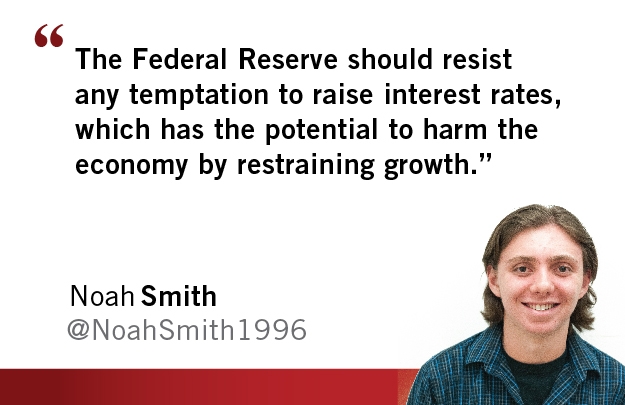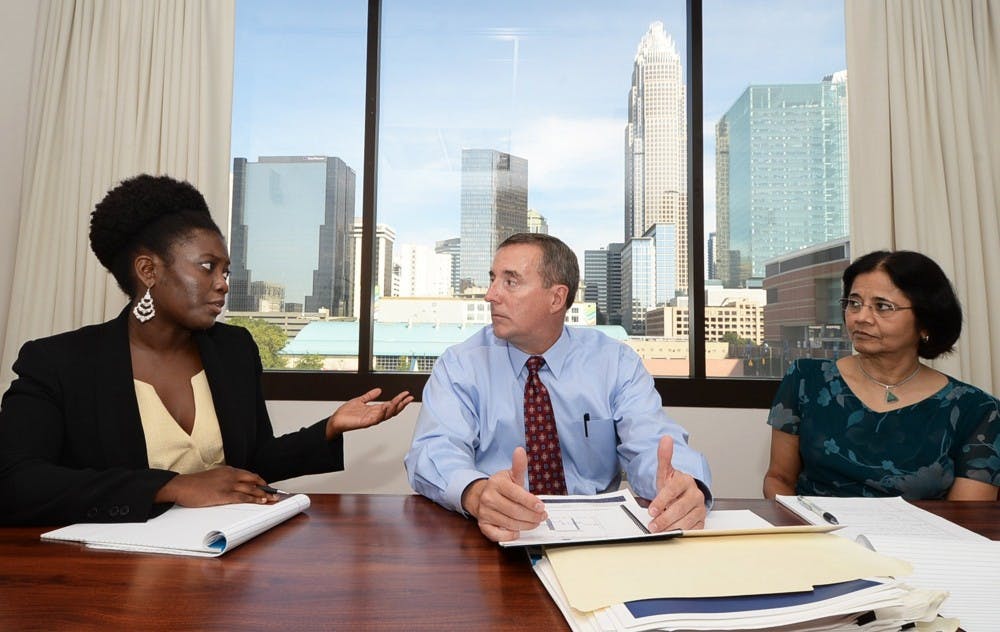Wall Street is already looking forward to June: the time when the Federal Reserve will make its decision to either raise interest rates or keep them at their current levels. As of right now, the Fed has kept interest rates near 0 percent since December 2008, and it has not raised the rates since July 2006.
Many experts believe that the economy is surging. Trends suggest that the U.S. has a strong labor market, with levels of near-full employment. Also, the Dow Jones is at the highest that it has been in years.
Despite these great gains, numbers like these worry the Federal Reserve. Steady growth of the economy is good, but too much growth too fast only causes inflation, where too much money is chasing too few products. The reserve judges that inflation at the rate of 2 percent (annual change in the price index for personal consumption expenditures) is the level needed for price stability and maximum employment. Inflation above 2 percent is a key thing that the Fed tries to avoid.
In reality, there should be no fears of problematic inflation just yet. The fears of rising inflation have not been realized, as expectations remain subdued and actual inflation is trending downwards, according to Martin Neil Baily of the Brookings Institution. In fact, the Wall Street Journal reports that core inflation has been stuck between 1.3 percent and 1.7 percent since mid-2012, and isn’t forecast to reach 2 percent until 2017.
By allowing the economy to grow with low interest rates, inflation will rise to the desired level wanted by the Federal Reserve for optimal stable prices and maximum employment in within the next few years. In fact, the low rates are primarily responsible for the economy currently reaching the employment rate of 5.9 percent right now, a few points away from full employment.

When it comes to monetary policy, Stanford professor John Taylor believes that exercising discretion and deviating from specific rules in response to changing economic conditions creates unnecessary harms to the economy. By raising rates, instituting a new rule, in response to economic trends instead of adhering to the existing rules of low rates, the Federal Reserve could potentially hurt the economy by shaping a “V-shaped” recovery.
Besides inflation, one of the other worries of a surging economy is the creation of market bubbles that could create recessions. The last two recessions were both caused by the bursting of the stock market bubbles in 2001 and real estate bubbles in 2008. As a result, many are calling for the Federal Reserve to increase interest rates before this can happen again. But there are other ways to keep these asset bubbles from happening without raising interest rates.
For example, The Fed has the ability to use its regulatory authority, absent during the run-up of the real estate bubble, to arrest bubble growth and discourage people from buying overvalued assets, according to Mark Weisbrot of the Center for Economic and Policy Research. Why should the Federal Reserve risk the profitability and growth of the economy when there are many other options to prevent the creation of market bubbles?
The Federal Reserve should resist any temptation to raise interest rates, which in turn could harm the economy by unnecessarily restraining growth.
Reach the columnist at ndsmit12@asu.edu or follow @noahsmith1996 on Twitter.
Like The State Press on Facebook and follow @statepress on Twitter.
Editor’s note: The opinions presented in this column are the author’s and do not imply any endorsement from The State Press or its editors.
Want to join the conversation? Send an email to opiniondesk.statepress@gmail.com. Keep letters under 300 words and be sure to include your university affiliation. Anonymity will not be granted.




